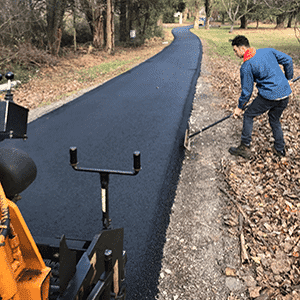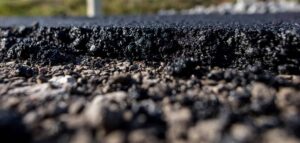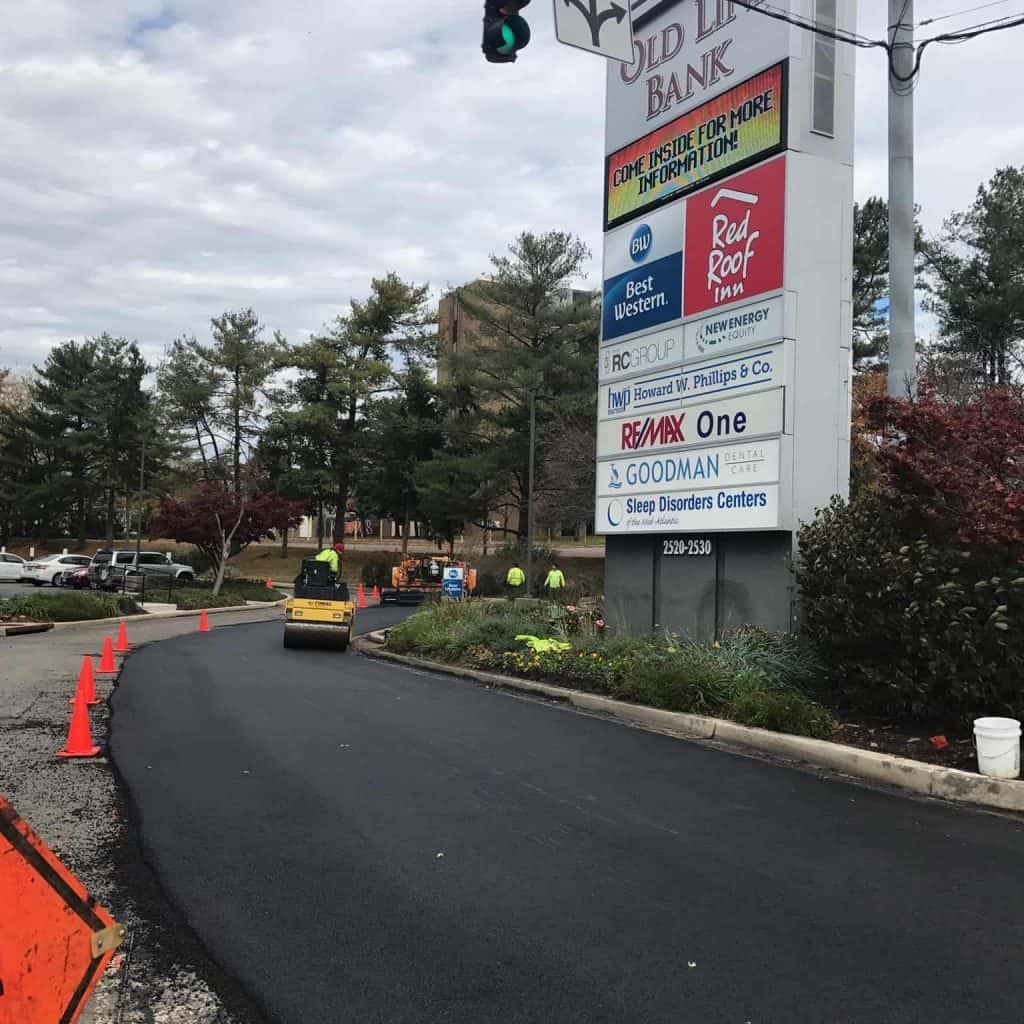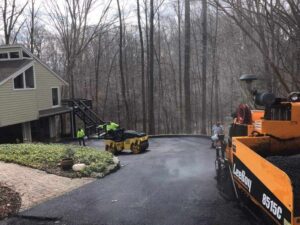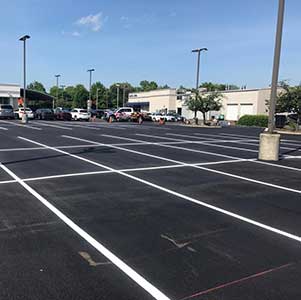When you think of asphalt, you likely picture highways, driveways, or parking lots. But have you ever wondered why asphalt is the preferred material for so many paving projects? The secret lies in the science behind asphalt’s unique properties. In this article, we’ll dive into the engineering and chemistry that make asphalt the best choice for roads and driveways.
1. The Composition of Asphalt: A Perfect Blend
Asphalt is more than just a black, tar-like substance. It’s actually a carefully engineered mix of:
- Bitumen – A sticky, petroleum-based binder that holds the mix together.
- Aggregates – A combination of crushed stone, sand, and gravel that provides strength and durability.
- Air Voids – Small gaps that allow for flexibility and water drainage, reducing cracking and damage.
The ratio of these materials is fine-tuned for different environments and uses. For instance, highways use a mix that resists heavy truck loads, while driveways prioritize smoothness and flexibility to withstand temperature changes.
2. Why Asphalt is So Durable
One of the biggest advantages of asphalt is its ability to expand and contract with changing temperatures. This is because of its viscoelastic properties—meaning it behaves as both a liquid and a solid depending on external conditions.
- Hot weather: Asphalt softens slightly, allowing it to absorb stress instead of cracking.
- Cold weather: It contracts but remains flexible, preventing large fractures.
This natural adaptability makes asphalt far less prone to cracking than concrete, which is more rigid and susceptible to freeze-thaw damage.
3. The Self-Healing Properties of Asphalt
Did you know that asphalt has the ability to repair itself under the right conditions?
When heated by the sun, bitumen can slightly melt and redistribute, filling in tiny cracks before they become major problems.
Recent research has even explored self-healing asphalt that uses microscopic metal fibers to heat and repair damage when exposed to an electrical current! This could extend asphalt’s lifespan dramatically and reduce repair costs.
4. Why Asphalt Is the Quietest Paving Material
If you’ve ever driven on an asphalt road and then switched to a concrete one, you may have noticed a difference in noise. That’s because asphalt has a natural sound-absorbing quality.
- The porous structure of asphalt reduces sound waves from bouncing back.
- Asphalt’s smooth texture means less tire noise, which is why many highways are resurfaced with asphalt to reduce noise pollution.
Some cities even use rubberized asphalt, which contains recycled tires, to make roads even quieter!
5. How Asphalt is Engineered for Different Uses
Not all asphalt is the same—different formulations are designed for different purposes. Here are some examples:
- Porous Asphalt: Allows water to drain through, reducing puddles and runoff. Ideal for eco-friendly parking lots.
- High-Performance Asphalt: Contains polymer additives for extreme durability in heavy traffic areas.
- Cold Mix Asphalt: Used for temporary pothole repairs in winter, since it doesn’t require heating.
Understanding these variations helps ensure that the right type of asphalt is used for each job, maximizing performance and lifespan.
More Than Just a Black Surface
Asphalt is one of the most widely used paving materials in the world—not just because it’s cost-effective, but because science backs up its durability, flexibility, and efficiency. With ongoing research into self-healing technology, quieter formulations, and eco-friendly improvements, the future of asphalt is even more exciting!
Need high-quality asphalt paving for your driveway, parking lot, or roadway? Capital Paving & Sealcoating has the expertise to deliver a surface engineered for long-lasting performance. ContactContact Us us today for a free consultation!

